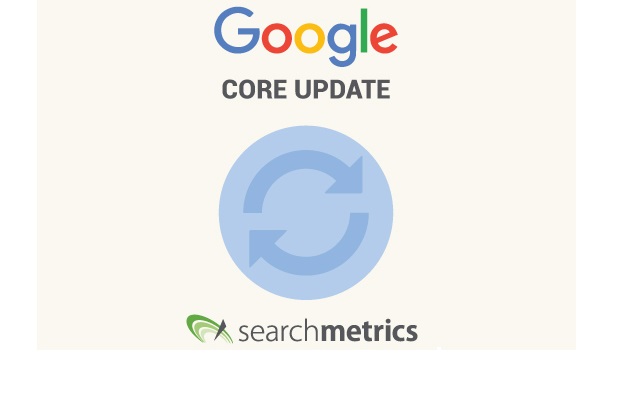Major websites including The Atlantic, GQ, New Yorker, Economist and Time have all fallen victim to recent updates to Google’s core search algorithm, with their web pages no longer featuring as prominently as the search giants rankings, according to new research.
The study, from Searchmetrics, indicates that Google’s revamp has led to a marked drop in the key titles’ respective websites on Google’s US search index, according to the analysis published this weekend.
Google’s recent core search algorithm update in the last few days has meant big changes in how websites (including online publications) are positioned in search results, according to a new analysis by Searchmetrics.
The algorithm update has been hinted at by some Google employees on Twitter, including John Mueller and Gary Illyes (see below):
@dawnieando It's not penguin; not "confirmed-ish" just "confirmed" :-).
— John Mueller (@JohnMu) January 12, 2016
@jenstar yes, the changes you saw are part of a core algo update. @Missiz_Z is right almost always, you shan't need my confirmation
— Gary Illyes (@methode) January 12, 2016
The Searchmetrics analysis has identified visibility gains and losses for many sites in the Google.com (US) index including TheAtlantic.com, GQ.com, Newyorker.com, Economist.com and Time.com. These changes hold true for searches on desktops and mobile devices.
Searchmetrics’ analysis indicates for example that the theatlantic.com, an online publisher, ‘has primarily lost visibility with old URLs that ranked for brand keywords’.
Marcus Tober, CTO and founder of Searchmetrics said in the company blog post: “It is apparent that many loser domains are classic print publishers and their losses in rankings mainly stem from older content pieces. Additional publishers who lost rankings are newyorker.com, vanityfair.com, arstechnica.com, fastcompany.com and economist.com.”
At the same time as some online publisher sites have experienced drops in search performance, others actually won in Google.com search results. Gains have been experienced for instance by those publishers with current or holistic content (where holistic refers to covering a topic comprehensively).
One of the top winners from this update according to Searchmetrics’ analysis is gq.com. On gq.com the biggest winning URL is a comprehensive article about NFL star Tom Brady. The article contains photos and a video and a lot of text (more than 3000 words including an interview). Other publishers who gained visibility are time.com, qz.com, howstuffworks.com, politico.com and inquisitr.com.
According to Searchmetrics, whether a publisher or brands won or lost for a specific keyword is dependent on the individual QDF (query deserves freshness) score that Google calculates – this is linked to whether the topic/search relates to current news and events and user behavior, particularly search volume. For topics that are current, publishers with current content witnessed visibility gains.
According to Searchmetrics, the above trend is not yet noticeable in other international markets, which could indicate that this update has not yet been rolled out globally.
Analysis: ‘Timeless information’ beating short-term news topics
The Searchmetrics report included further analysis, republished below:
“In many cases brands (with their official websites and profiles) now take up more real estate in the Google search results for their brand names. News publishers typically won with in-depth articles that contain “timeless” information (eg. long interviews). Where news publishers lost was often with short articles that focused on a specific aspect (e.g. classical news articles).
Example:
An article mentioning that a celebrity has a new partner is only interesting in the very short term. For such a content piece to still be in the rankings months later doesn’t make any sense. Longer pieces of content such as interviews are a typical example of content pieces experiencing gains, something we are noticing frequently.
“When Google carries out an update, it is generally to improve the experience for its users. This means providing the best possible search results, and getting its search algorithm to reflect this. Based on vast amounts of user data, content that loses out after an update, is content Google believes does not best serve a user search query. This is not refreshing the content per se, but rather refreshing what its algorithm determines to be the best content.
“There is also something we call query deserves freshness (QDF): When there is current news about a brand or entity, for example news about Tom Brady, articles that are very fresh and cover this specific news aspect will rank very highly for this search term. These factors are independent of each other. QDF is something Google has been doing for a couple of years.”
Read Marcus Tober’s post about this algorithm update here
Methodology
The Searchmetrics analysis of the Google algorithm update is based on changes in SEO Visibility – a metric that Searchmetrics has developed to measure and track online search performance of websites.
Searchmetrics tracks the organic search results of millions of keywords which it uses to calculate the ‘SEO Visibility’ score. The SEO visibility score for a web domain is based on:
· The number of times a domain appears in the search engine results pages (SERPs) across the keyword set
· Its prominence within those SERPs (a higher ranking equates to a higher visibility score)
· The competitiveness of the keyword (higher search volumes equate to a higher visibility score)
While SEO Visibility can relate to a website’s real traffic, it is important to remember that traffic can come from many different places online. SEO Visibility is only an indicator of visibility that comes from a website’s organic search channel.

